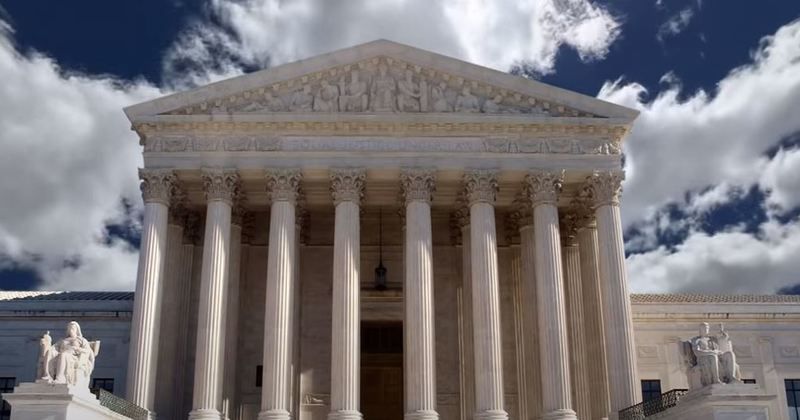On Friday, the U.S. Supreme Court ruled that lower federal courts acted unlawfully in issuing nationwide injunctions against President Donald Trump’s executive order targeting birthright citizenship.
“[F]ederal courts do not exercise general oversight of the Executive Branch; they resolve cases and controversies consistent with the authority Congress has given them. When a court concludes that the Executive Branch has acted unlawfully, the answer is not for the court to exceed its power, too,” wrote Associate Justice Amy Coney Barrett in the majority opinion.
The 6-3 decision was supported by Chief Justice John Roberts and Associate Justices Clarence Thomas, Samuel Alito, Neil Gorsuch, and Brett Kavanaugh, alongside Barrett. Dissenting were Justices Sonia Sotomayor, Elena Kagan, and Ketanji Brown Jackson.
The case, Trump v. CASA, Inc., involved challenges to Trump’s executive order aimed at ending birthright citizenship—a policy that grants U.S. citizenship to anyone born on American soil, regardless of their parents’ immigration status. Lower courts had issued sweeping injunctions that blocked the policy nationwide, prompting the Trump administration to appeal to the Supreme Court, asking it to limit those injunctions to only the plaintiffs involved in the lawsuits.
In her opinion, Barrett criticized the use of such sweeping court orders: “These injunctions — known as ‘universal injunctions,’” she wrote, “likely exceed the equitable authority that Congress has granted to federal courts.”
Barrett further wrote, “The Government’s applications to partially stay the preliminary injunctions are granted, but only to the extent that the injunctions are broader than necessary to provide complete relief to each plaintiff with standing to sue.” She added that lower courts must now adjust their rulings to stay within the bounds of proper judicial authority and not prohibit executive agencies from “developing and issuing public guidance about the Executive’s plans to implement the Executive Order.”
Justice Thomas, joined by Gorsuch, issued a concurring opinion stating the Court’s ruling “puts an end to the ‘increasingly common’ practice of federal courts issuing universal injunctions.” He emphasized that such relief must be constrained by historical limits: “Lower courts should carefully heed this Court’s guidance and cabin their grants of injunctive relief in light of historical equitable limits. If they cannot do so, this Court will continue to be ‘dutybound’ to intervene.”
Justices Alito and Kavanaugh also wrote concurring opinions, with Thomas joining Alito’s.
Justice Sotomayor penned the lead dissent. She argued that Trump’s order was “plainly unlawful” and accused the administration of political maneuvering. “The gamesmanship in this request is apparent and the Government makes no attempt to hide it. Yet, shamefully, this Court plays along,” she wrote. “Because I will not be complicit in so grave an attack on our system of law, I dissent.”
Justice Jackson also wrote a separate dissenting opinion.
 Telegram is where we really talk. Don't miss out!
Telegram is where we really talk. Don't miss out!







